Politics
UCAS code L210
- Study mode
- Full-time
- Duration
- 3 years
- Start date and application deadlines
-
- Start date
UCAS code L210
Studying Politics develops an in-depth and critical understanding of government and society at local, national and international levels. You will learn to ask questions of power, justice, order, conflict, legitimacy, accountability, obligation, sovereignty, governance and decision-making
This flexible and broad programme explores the different approaches to political science in a range of national and international settings. It draws on the expertise of world leading scholars in the field and their cutting edge research to create an engaging, research led course.
You will explore political ideas, systems and processes and you will learn how to collect data, develop knowledge, construct arguments and communicate your findings in different ways.
In your first year you will be introduced to the building blocks of political studies, meaning that no prior specialist knowledge is required. Then in your second and third year you will have the freedom to explore the areas of political study that interest you the most. With a wide range of modules to choose from you can focus your degree in one or two areas or cover a whole variety of topics from British Politics, gender analysis, International Relations, political theory, comparative politics and much more.
There are also options to get involved in a number of different placement schemes including the opportunity for year three students studying Politics at Single Honours to apply to take part in the Parliamentary Placement Scheme.

We’re proud to announce we’ve been awarded a Gold rating for educational excellence.
Discover what you'll learn, what you'll study, and how you'll be taught and assessed.
In your first year you will be introduced to the building blocks of political studies, meaning that no prior specialist knowledge is required.
All modules in year one are required.
Students take 60 credits of required modules in each semester.
POLI105 is a year-long module, representing 15 credits per semester.
Programme details and modules listed are illustrative only and subject to change.
In year two you move on to more specialist modules to develop your path of study based on your own interest. You have completely free choice in your modules in your second year and the opportunity to design the degree that most interests you. You also have a number of different opportunities to study abroad and to widen your knowledge and experience through that scheme.
Students take 60 credits of optional modules in each semester.
POLI200 is subject to an appropriate placement being sourced. Students cannot register directly for this module.
Registration onto HLAC220 is only for students planning to undertake a Work Placement Year.
Programme details and modules listed are illustrative only and subject to change.
In your third year you may select the Dissertation module and complete a sustained, original piece of work on a topic of your own choice.
Students take 60 credits of optional modules in each semester.
POLI342, POLI343 and POLI354 are subject to a suitable placement being sourced. Students cannot register directly onto these modules.
There is an application process for POLI342 and POLI343. Students accepted onto POLI342 module take POLI401 (Dissertation).
Students cannot take both POLI342 and POLI343.
POLI401 is a year-long module and represents 15 credits in each semester.
Programme details and modules listed are illustrative only and subject to change.
If studying Politics at 50%, in year one you will take ‘Foundations in Politics’ and ‘Foundations in International Politics’. You will also choose to study either ‘British Politics I’ or ‘Studying Politics Successfully: skills and methods’, and either ‘British Politics II’ or ‘Comparative Politics’. In years two and three there are a wide choice of optional modules, including the option of a dissertation in year three, giving you the chance to complete a sustained, original piece of work on a topic of your choice.
Research-connected teaching is initiated in the first year with introductions to quantitative, qualitative, theoretical, and critical methodologies, which are then embedded in second- and third-year modules so that students can evaluate and apply the methodologies to construct their own analyses. Though our lectures are interactive, our seminars, workshops, computer lab sessions, dissertations, and placements form the core of our active learning approach.
We use a rich variety of assessment methods to develop students’ various skills. Essays, exams, and presentations enable to students to practice core academic writing and speaking skills, while innovative assessments such as blog posts, reflective logs, group projects, podcasts, radio broadcasts and speeches expand our authentic assessment, enabling students to deploy transferable skills in various formats. Digital fluency is also developed in different ways, including sourcing relevant material, using online learning platforms and tools, producing audio and visual materials, word processing and statistical analysis.
We have a distinctive approach to education, the Liverpool Curriculum Framework, which focuses on research-connected teaching, active learning, and authentic assessment to ensure our students graduate as digitally fluent and confident global citizens.
The Liverpool Curriculum framework sets out our distinctive approach to education. Our teaching staff support our students to develop academic knowledge, skills, and understanding alongside our graduate attributes:
Our curriculum is characterised by the three Liverpool Hallmarks:
All this is underpinned by our core value of inclusivity and commitment to providing a curriculum that is accessible to all students.
The qualifications and exam results you'll need to apply for this course.
| Qualification | Details |
|---|---|
| A levels |
BBC |
| BTEC Level 3 national extended diploma |
DDM. |
| BTEC combinations |
BTEC National Diploma DM plus B at A level; BTEC National Extended Certificate M plus BB at A level. |
| Welsh Baccalaureate Advanced |
C in the Welsh Baccalaureate, plus BB at A level |
| Access |
Pass relevant Access to HE Diploma with 45 Level 3 credits with 27 at Distinction and 18 at Merit |
Studying with us means you can tailor your degree to suit you. Here's what is available on this course.
University of Liverpool students can choose from an exciting range of study placements at partner universities worldwide. Choose to spend a year at XJTLU in China or a year or semester at an institution of your choice.
Immerse yourself in Chinese culture on an optional additional year at Xi'an Jiaotong Liverpool University in stunning Suzhou.
Broaden your world by spending an additional year of study at a partner university abroad following your second year of study.
Take a semester of your second year of study at one of our worldwide partner institutions.
Spend a summer abroad on a study placement or research project at one of our worldwide partner institutions.
Every student at The University of Liverpool can study a language as part of, or alongside their degree. You can choose:
With a combined degree, you can study two subjects as part of the same degree programme.
The Department of Politics is part of the School of Histories, Languages and Cultures and is based in 8-14 Abercromby Square. Students will be taught in a variety of buildings across campus.
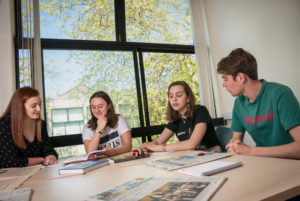
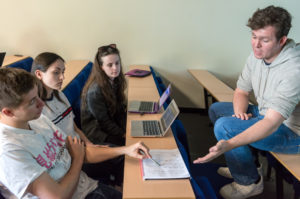
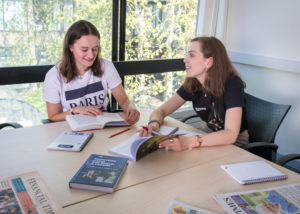

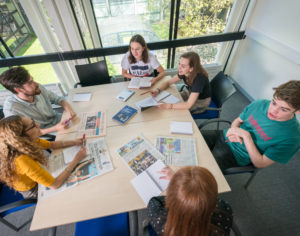
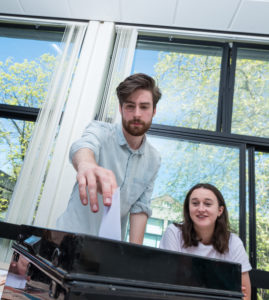
From arrival to alumni, we’re with you all the way:

Want to find out more about student life?
Chat with our student ambassadors and ask any questions you have.
A Politics degree can open doors to a range of careers, including political work, social and political research, journalism, PR and marketing.
Previous employers include:
80% of politics students are in work and/or further study 15 months after graduation.
(Discover Uni, 2018-19.)
Hear what graduates say about their career progression and life after university.

Can you tell us a little bit about your role at the House of Commons? “One of the best things about working in Parliament is that there really is no ‘typical day’. My role is to advise and work with the MP in responding to, and communicating, current affairs. On the Parliamentary side of things, […]

Emma is a Production Management Assistant on the One Show.
Your tuition fees, funding your studies, and other costs to consider.
Full-time place, per year - £9,535
Year abroad fee - £1,430 (applies to year in China)
Full-time place, per year - £24,100
Year abroad fee - £12,050 (applies to year in China)
The tuition fees shown are correct for 2025/26 entry. Please note that the year abroad fee also applies to the year in China.
Tuition fees cover the cost of your teaching and assessment, operating facilities such as libraries, IT equipment, and access to academic and personal support. Learn more about paying for your studies.
We understand that budgeting for your time at university is important, and we want to make sure you understand any course-related costs that are not covered by your tuition fee. This could include buying a laptop, books, or stationery.
Find out more about the additional study costs that may apply to this course.
We offer a range of scholarships and bursaries that could help pay your tuition and living expenses.
If you’re a UK student joining an undergraduate degree and have a household income below £35,000, you could be eligible for a Liverpool Bursary worth up to £2,000 for each year of undergraduate study.
Apply for an Asylum Seekers Scholarship and you could have your tuition fees paid in full and receive help with study costs. You’ll need to have applied for asylum in the UK, or be the dependant of an asylum seeker, and be joining an eligible undergraduate degree.
If you’ve spent 13 or more weeks in Local Authority care since age 14, you could be eligible for a bursary of £3,000 per year of study. You’ll need to be a UK student joining an eligible undergraduate degree and be aged 28 or above on 1 September in the year you start.
Are you a UK student with a Black African or Caribbean heritage and a household income of £25,000 or less? You could be eligible to apply for a Cowrie Foundation Scholarship worth up to £8,000 for each year of undergraduate study.
If you’re a UK student identified as estranged by Student Finance England (or the equivalent UK funding body), you could be eligible for a bursary of £1,000 for each year of undergraduate study.
Joining a School of Biosciences degree and have a household income of less than £25,000? If you’re a UK student, you could apply to receive £4,500 per year for three years of your undergraduate course.
Do you live in the Liverpool City Region with a household income of £25,000 or less? Did neither of your parents attend University? You could be eligible to apply for a Nolan Scholarship worth £5,000 per year for three years of undergraduate study.
Are you a UK student with a household income of £25,000 or less? If you’ve participated in an eligible outreach programme, you could be eligible to apply for a Rigby Enterprise Award worth £5,000 per year for three years of your undergraduate degree.
Are you a UK student with a household income of £25,000 or less? Did neither of your parents attend University? You could be eligible to apply for a ROLABOTIC Scholarship worth £4,500 for each year of your undergraduate degree.
Apply to receive tailored training support to enhance your sporting performance. Our athlete support package includes a range of benefits, from bespoke strength and conditioning training to physiotherapy sessions and one-to-one nutritional advice.
Joining a degree in the School of Electrical Engineering, Electronics and Computer Science? If you’re a UK student with household income below £25,000, you could be eligible to apply for £5,000 a year for three years of study. Two awards will be available per academic year.
If you’re a young adult and a registered carer in the UK, you might be eligible for a £1,000 bursary for each year of study. You’ll need to be aged 18-25 on 1 September in the year you start your undergraduate degree.
Use our handy chatbot for your Clearing enquiries.
Last updated 17 June 2025 / / Programme terms and conditions